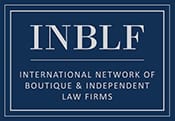States burdening packagers, while feds move toward burdening regulators
June 2017
Eric F. Greenberg Attorney-at-Law
Come with me now into the strange and fascinating world of government structure and organization. It’s a busier realm these days than usual, and much more wacky than you may think. You know you’re into some weird stuff when you hear that “federalism,” a term that actually contains the word for the national government, really refers to the idea of states’ powers.
But after all, what we have in the U.S. is a two-tiered system (more than two if you count counties and municipalities). Both tiers, federal (national) and the states, have been at a high boil lately, reconsidering or rearranging government powers or reacting to what the others do. Packagers are affected directly by some of these actions, or indirectly by others simply because they are businesses.
Easy to forget these days, but the United States was originally designed as a club whose member states were sovereign and independent and who thought of themselves as somewhat grudgingly giving some of their powers to the national government. The system of “federalism” means the states have lots of power, and so do the feds.
Naturally, the framers and amenders of the Constitution knew that when you have a system of government that has two levels, there were bound to be disputes over the division of labor. How did they solve that problem? By writing into the Constitution two separate provisions, one of which says we should give the benefit of the doubt to federal laws, and one of which says we should give the benefit of the doubt to states. Yes, the “Supremacy Clause” says that federal law is the “supreme law of the land” and preempts state laws on the same topics. The Tenth Amendment, though, says, “The powers not delegated to United States by the Constitution, nor prohibited by it to the states, are reserved to the states respectively, or to the people.”
Is it always easy to reconcile these two provisions? Um, no. Further complicating the picture is the fact that whenever states do take any action, it has to be in line with the U.S. Constitution’s requirements, such as equal protection and due process and the “commerce clause” that says the feds regulate commerce and nothing a state does can interfere too much with interstate commerce and gee whiz there are a lot of fights over stuff like this and it’s not as simple as it may sound.
The big goal of the new Trump administration appears to be to reduce federal regulations on business on various topics and let the states start getting more active instead. Maybe, but some state actions are specifically not the way the administration would have done it.
For example, perhaps because California legislators don’t expect the Trump administration to act, they are moving ahead with a ban on some fluoridated chemicals in food packaging. At press time, it had been amended and was described as prohibiting “a person or entity from manufacturing, selling, or distributing in commerce any product that contains perfluoroalkyl or polyfluoroalkyl substances with eight or more carbon atoms,” and instructs state officials, “On or before January 1, 2019… to identify food contact substances containing perfluoroalkyl or polyfluoroalkyl substances as draft priority products and, on or before January 1, 2020, shall begin adoption of regulations …for the identified food contact substances.”
Meanwhile, the Trump administration has started stripping away regulatory requirements of various kinds on a multitude of topics. Congress passed and the President signed some laws specifically to undo regulations promulgated late in the Obama administration, relying on a federal law called the Congressional Review Act. With it, they undid rules on topics from land use to education, employment law, and broadband privacy.
The administration has also put in place new guidance that calls for agencies to eliminate 2 regulations (probably they mean sets of rules) for every new 1 that they make. I discussed this in the March column.
And, to further change the rules of the game going forward, the administration and its supporters in Congress have advanced a new law that would re-wire the relationship between agencies and courts. Going back to the 1980s, courts have deferred to agency decisions when the law or regulation the agency is interpreting is in some way unclear. That left too much power in the hands of administrators—unelected, often unknown to the public—say those opposed to the famous “Chevron” Supreme Court decision that called for such deference.
Well, this new proposed law—it’s already passed the House—would undo that by saying that courts should conduct de novo (brand new, from scratch) review of such decisions and not defer to the regulators. No more would courts view a “gap or ambiguity” in a law or regulation as (1) an implicit delegation to the agency of legislative rulemaking authority, or (2) a justification for interpreting agency authority expansively or for deferring to the agency’s interpretation on the question of law.”
This part of the law is only one of several that send a loud and clear message that Congress doesn’t want regulators to have as much power. They’d rather make their lives tougher by imposing new requirements on how and when they make regulations.
Even if that law doesn’t pass, the new administration has already made clear that it wants to change the relationship among the parts of the national government. And states have made clear that they will get more active, either because of their new freedom to act, or in rebellion against it. PW
Eric Greenberg can be reached at [email protected], or visit his firm’s Web site at www.ericfgreenbergpc.com.
This article is informational only and is not intended as, and should not be considered to be, legal advice.
Be sure to check for any updated information about the topics discussed in this article.


